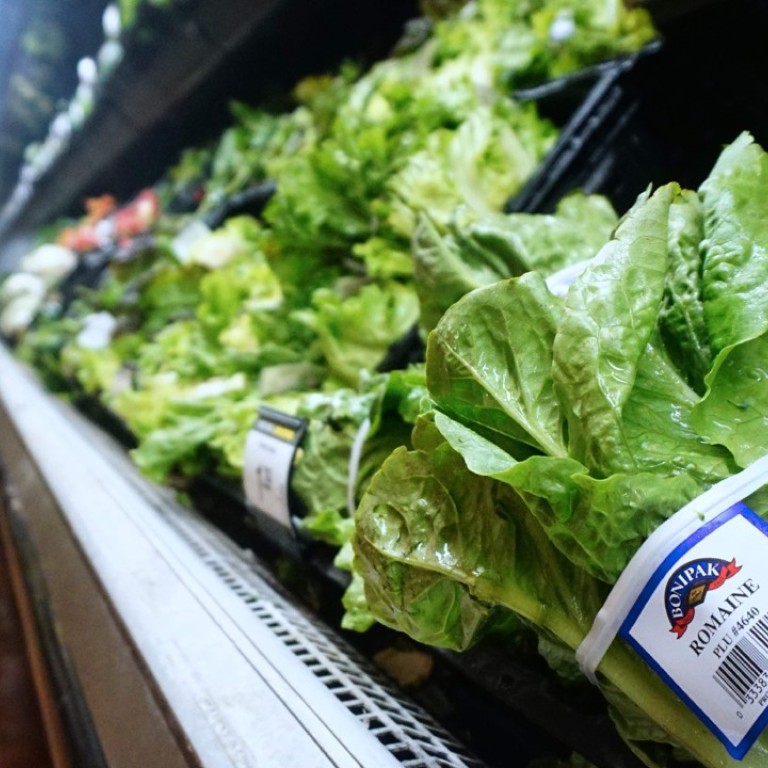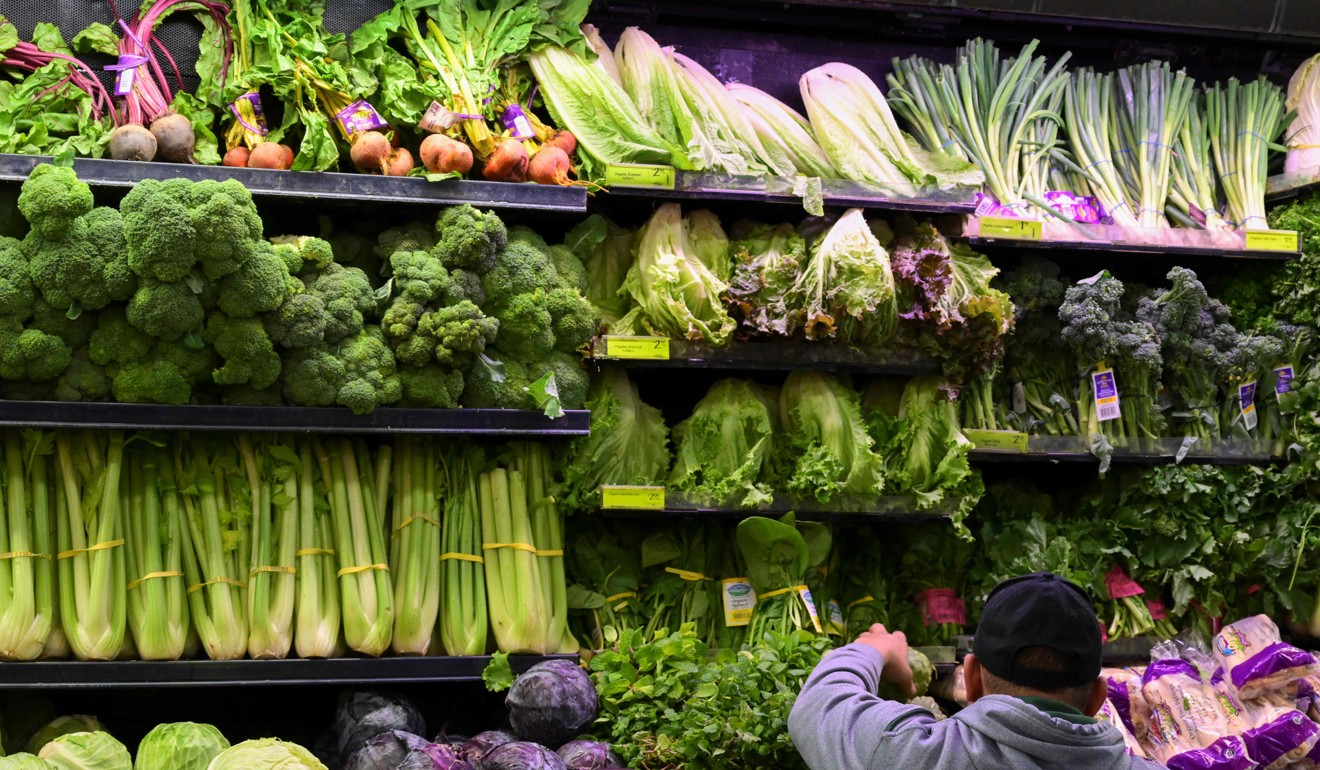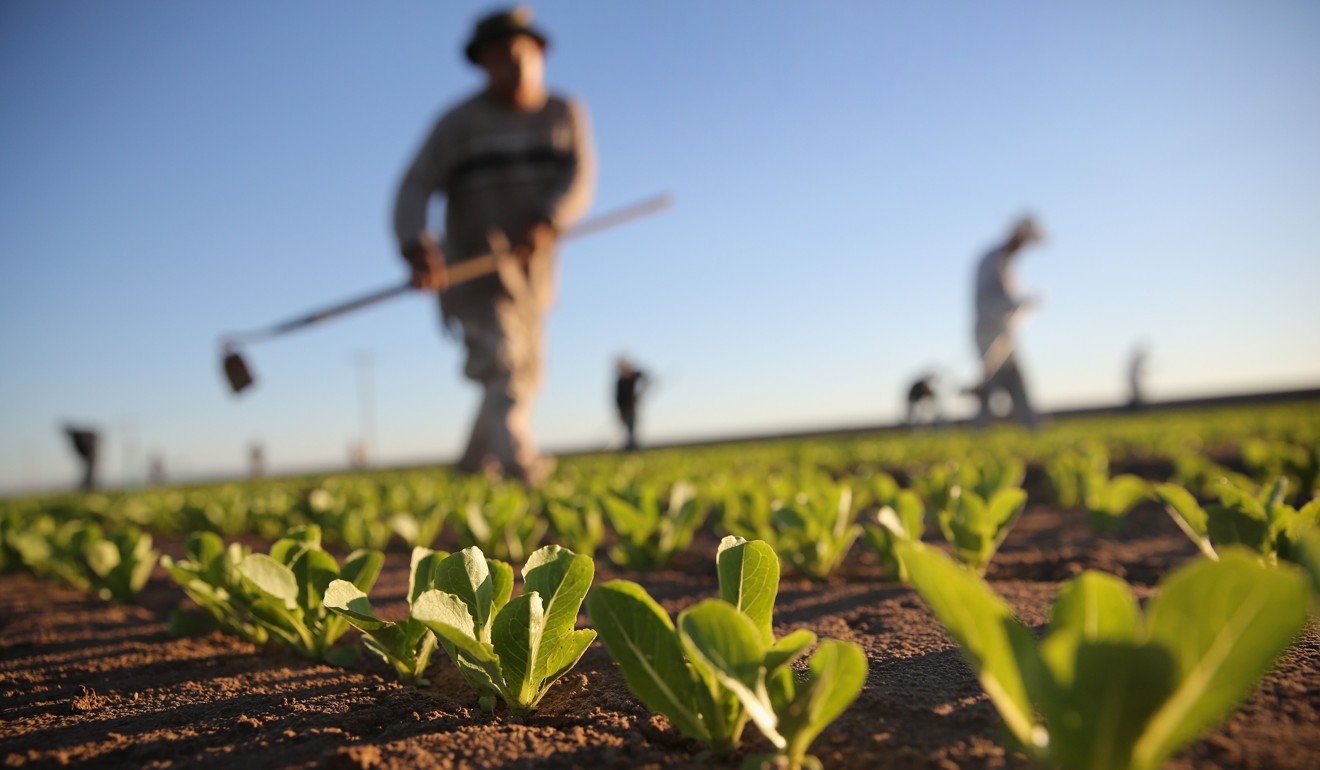
Romaine lettuce is unsafe in any form, from any source, US consumers are warned amid E. coli outbreak
- Dozens of people have been sickened after eating romaine lettuce in the US and Canada
- The source of the outbreak is unclear, prompting an unusually broad warning from the US Centres for Disease Control
Romaine lettuce is unsafe to eat in any form, the US Centres for Disease Control and Prevention warned American consumers on Tuesday in a food safety alert in response to a new outbreak of illnesses caused by a particularly dangerous type of E. coli bacteria.
CDC told consumers to throw away any romaine lettuce, also known as cos lettuce, they may already have purchased.

Restaurants should not serve it, stores should not sell it, and people should not buy it, no matter where or when the lettuce was grown. It doesn’t matter if it is chopped, whole head or part of a mix.
The unusually broad warning, issued just two days before Americans sit down for their Thanksgiving dinners, reflects the uncertainties about the origin and extent of the bacterial contamination. The CDC is not claiming that all romaine contains the dangerous bacteria – something the millions of people who have eaten the popular lettuce recently should bear in mind – but investigators don’t know precisely where, when or how the contamination happened.
Thus all romaine is suspect.
The CDC reported that 32 people in 11 US states have become sick from eating contaminated romaine. Of those, 13 have been hospitalised, with one patient suffering from a form of kidney failure. The Public Health Agency of Canada has reported that 18 people have been infected with the same strain of E. coli in Ontario and Quebec.
No deaths have been reported.

“Consumers who have any type of romaine lettuce in their home should not eat it and should throw it away, even if some of it was eaten and no one has gotten sick,” the CDC said in the Food Safety Alert issued shortly before 3pm.
“This advice includes all types or uses of romaine lettuce, such as whole heads of romaine, hearts of romaine, and bags and boxes of precut lettuce and salad mixes that contain romaine, including baby romaine, spring mix, and Caesar salad,” the CDC said. “If you do not know if the lettuce is romaine or whether a salad mix contains romaine, do not eat it and throw it away.”
The agency also advised consumers to wash and sanitise drawers and shelves where the lettuce was stored. People usually become sick within three or four days of consuming lettuce contaminated with the E. coli, according to the CDC.
Scott Gottlieb, commissioner of the Food and Drug Administration, said the looming Thanksgiving holiday weighed on the minds of federal officials as they prepared the food alert.
“I think we felt increased pressure to try to communicate earlier and more substantively with the public given that we know people are going to sit down for holiday meals,” Gottlieb said.
But he acknowledged that it is “frustrating and unfortunate” that the alert has to be so broad, covering all romaine lettuce. The federal agencies and the industry are trying to improve traceback techniques to narrow down the sources of outbreaks, he said. “We need to be able to get consumers more precise information about what they shouldn’t be eating, rather than these more general alerts.”
California has the highest number of reported US illnesses, with 10, followed by Michigan with seven, New Jersey with three, Illinois, Massachusetts, New Hampshire and New York with two each, and the remainder in Connecticut, Maryland, Ohio and Wisconsin.

